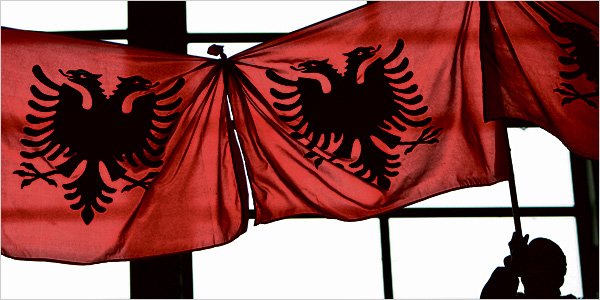Ilankai Tamil Sangam30th Year on the Web Association of Tamils of Sri Lanka in the USA |
|||
 Home Home Archives Archives |
Independence Dazeby Gary J. Bass, The New York Times, January 6, 2008
At some point early in this new year, President Bush and major European Union leaders are likely to recognize the independence of Kosovo over the furious objections of Serbia and its traditional protector, Russia. Such a decision may have unintended consequences. If Kosovo successfully achieves statehood, Republika Srpska, the Serb entity in Bosnia, will be tempted to follow suit in reprisal, slicing Bosnia almost in half. Meanwhile, Belgium has been gripped by talk about repeating Czechoslovakia’s 1993 “velvet divorce,” with Flemings and Walloons possibly splitting and forming their own little states. What about the claims for the independence of Kurdistan from Iraq or Chechnya from Russia or Transdniestria from Moldova? Referring to two regions of Georgia, President Vladimir Putin of Russia remarked, “If someone believes that Kosovo should be granted full independence as a state, then why should we deny it to the Abkhaz and the South Ossetians?” It’s not a bad question — and it’s sure to bedevil Bush’s successor in the White House. Who deserves statehood? In the early 21st century, it seems a number of the most time-honored answers to that question are unworkable. Woodrow Wilson famously maintained that nations have a right to self-determination. This corrosive principle was applied to the defeated Ottoman and Austro-Hungarian empires at the end of World War I (although not the victorious British and French ones). But what defines a nation? Ernest Renan, a 19th-century French philosopher, asked, “Why is Holland a nation, while Hanover and the Grand Duchy of Parma are not?” Is it language, ethnicity, religion, a common political system, territory, size (19th-century liberals thought that some nations, like Sicilians or Bretons, were too small for statehood) or what? Language can’t be the answer: there are perhaps 6,900 languages in the world today, but only 192 states in the United Nations. Another Wilsonian determinant would be democratic choice: if a group of people votes fairly for self-rule, outsiders should honor their decision. In 1999, the East Timorese voted for independence from Indonesia; in 2011, South Sudan is set to hold a referendum on secession. But honoring plebiscites alone could be setting the bar too low. There are a great many potential “splittists” out there (to use the Chinese government’s derogatory term), from Aceh to Xinjiang; the prospect of achieving independence at the ballot booth could ignite chaos and civil wars if it was dangled in front of all of them. And majority votes for secession could invite the persecution of minorities who remain loyal to the old parent country. A better approach, as some political philosophers suggest, would rest on individual rights and not on collective prerogatives. A group can properly ask for international recognition when it is being oppressed so harshly that self-rule becomes the best method to save lives and liberties. As Allen Buchanan, a Duke University philosopher, has argued, the right to secede is a “remedial right only” — a way of rectifying a wrong. This rule should be taken together with the late John Rawls’s reminder that there is no right to secede when secession entails subjugating another people. Rawls thus denied a Southern right to split off from the United States in 1861, since that course of action perpetuated slavery. These two guidelines would help insulate international political debate from the endless claims and counterclaims of nationalist rhetoric. A human rights standard means that Scots, Québécois and Basques don’t have much of a claim to break away from stable, prosperous, liberal democracies. Guarantees of individual rights or local self-government should suffice. Conversely, the Kurds — divided and abused in Syria, Turkey, Iran and Iraq — have a more urgent case for statehood. As for Kosovo, Slobodan Milosevic relinquished Serbia’s claim to authority by having the province stripped of its autonomy and later crushing its civilians. Even so, to earn international recognition, the Kosovar Albanians must stop menacing their Serb minority. Whatever the proper standard for secession might be, the next president cannot simply improvise. Following the Paris peace conference in 1919, Woodrow Wilson’s foreign policy adviser, Col. Edward M. House, reflected: “It was the gladdest and yet, in some ways, the maddest movement in history. In the endeavor to be free everything else was overlooked.” Without clear standards of justification, Western approval for Kosovo’s statehood could make it even harder to persuade the recalcitrant Sudanese government to allow joint U.N.-African Union peacekeepers to deploy effectively in Darfur, lest a protected Darfur one day seek independence, too. The costs of fogginess are too high, and we aren’t the ones who pay them. Gary J. Bass is a Princeton professor and the author of “Freedom’s Battle: The Origins of Humanitarian Intervention,” which will be published next summer by Knopf. |
||
|
|||
